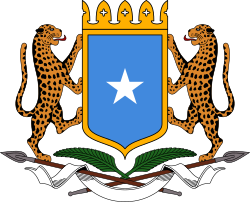 |
|---|
|
Parliamentary elections were held in Somalia on 31 December 1984. The country was a one-party state at the time, with the Somali Revolutionary Socialist Party (SRSP) as the sole legal party. Voters were asked to approve a list of 171 SRSP candidates. Turnout was reported to be 99.86% by the communist government. [1]